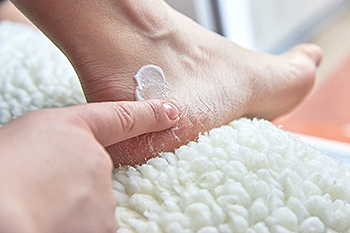
Cracked heels are a common foot ailment, and can cause severe pain while walking. Severely cracked heels are known as heel fissures and can occur when the skin on the heels becomes excessively dry, causing them to lose their elasticity. The various causes can range from dehydration and prolonged standing to wearing open-backed footwear that fails to provide proper support. Symptoms often include visible cracks, itching, redness, and discomfort. Fortunately, there are effective relief methods available. Regular moisturization, especially with thick creams containing urea, can help to keep the skin supple. Pumice stone exfoliation and gentle scrubbing can remove dead skin, aiding in prevention. In severe cases, professional help from a podiatrist may be needed, including applying prescription creams or ointments that can help accelerate healing. Cracked heels demand attention, but with care and consistent treatment, soft, pain-free feet are well within reach. If you have developed cracked heels, it is suggested that you speak with a podiatrist who can help you manage this condition.
If the skin on your feet starts to crack, you may want to see a podiatrist to find treatment. If you have any concerns, contact one of our podiatrists from Summit Podiatry. Our doctors can provide the care you need to keep you pain-free and on your feet.
Cracked Heels
It is important to moisturize your cracked heels in order to prevent pain, bleeding, and infection. The reason cracked heels form is because the skin on the foot is too dry to support the immense pressure placed on them. When the foot expands, the dry skin on the foot begins to split.
Ways to Help Heal Them
- Invest in a good foot cream
- Try Using Petroleum Jelly
- Ease up on Soaps
- Drink Plenty of Water
Ways to Prevent Cracked Heels
- Moisturize After Showering
- Skip a Shower
- Keep Shower Water Lukewarm
- Don’t Scrub Your Feet
If you are unsure how to proceed in treating cracked heels, seek guidance from a podiatrist. Your doctor will help you with any questions or information you may need.
If you have any questions, please feel free to contact one of our offices located in Wilmington, Whiteville, and Wallace, NC . We offer the newest diagnostic and treatment technologies for all your foot care needs.
